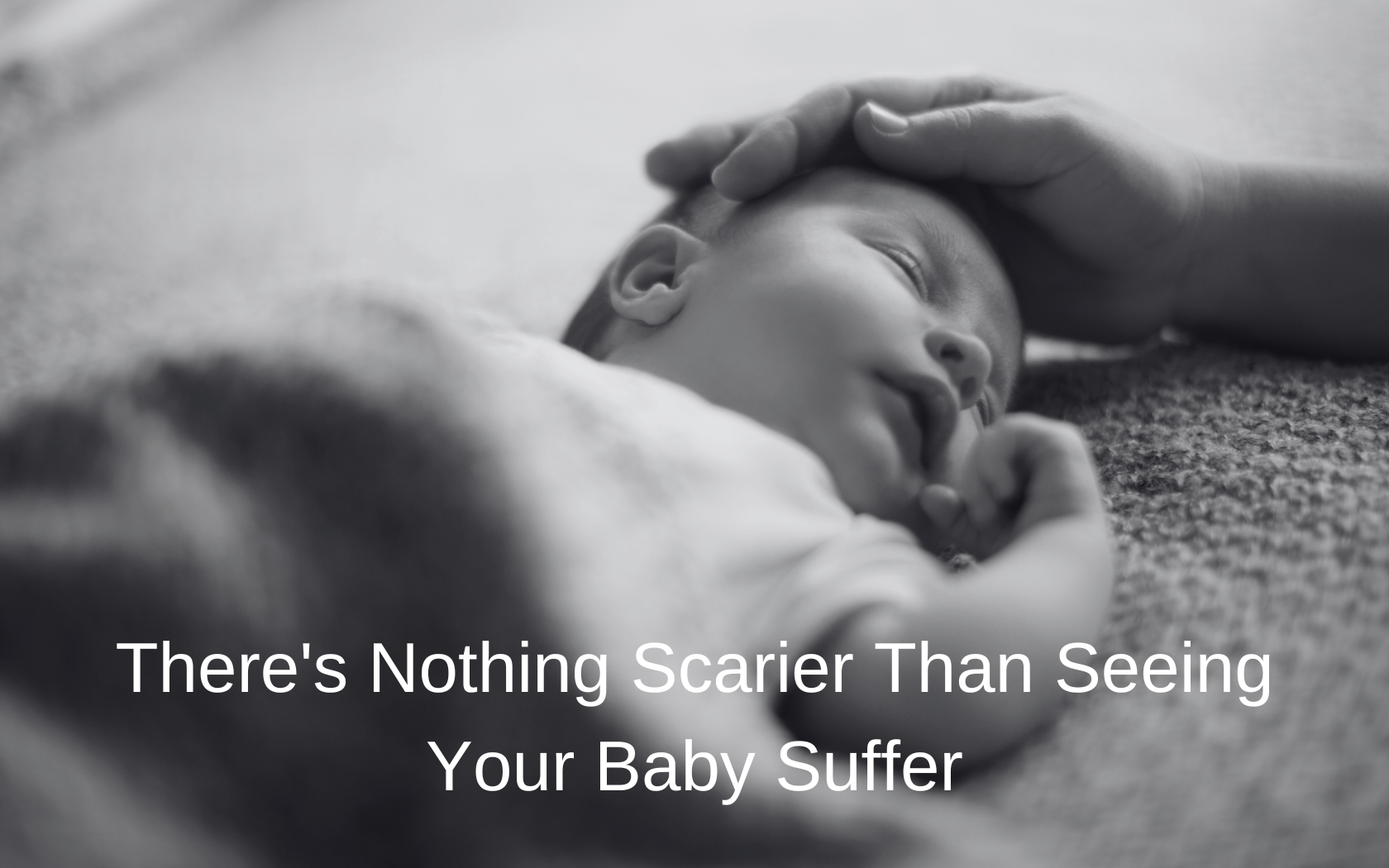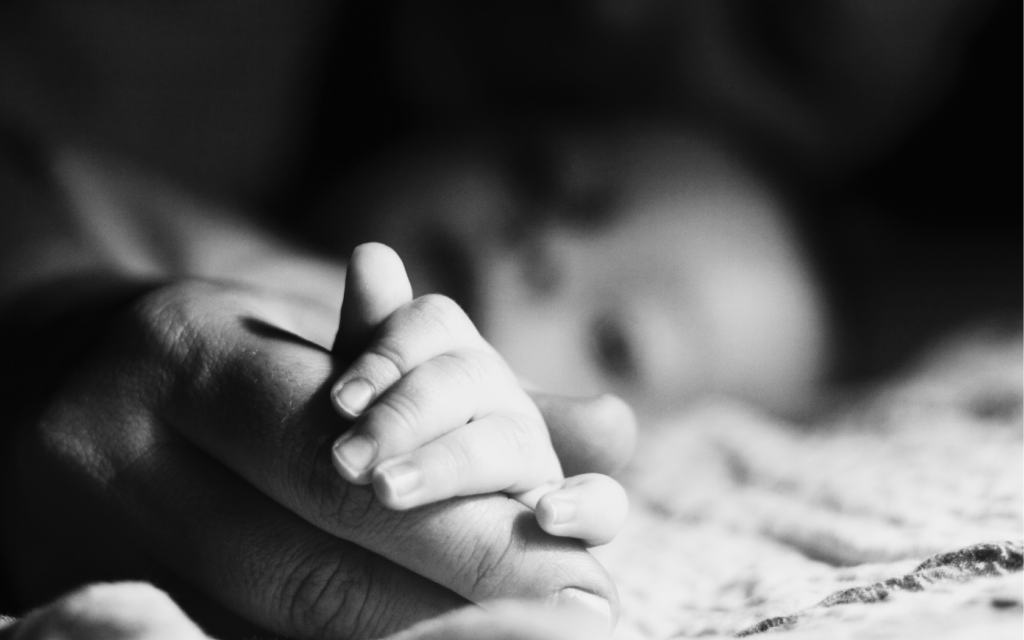Your baby looks perfect. She’s in perfect health. Then suddenly, she’s shaking all over. It’s a seizure—and it came out of nowhere. There are many causes of infant seizures, so it might take some time for doctors to tell you what triggered this event in your baby.
Let’s take a look at what a seizure is, and what causes infant seizures before the age of 1 year.

What is a seizure?
Imagine your brain as a busy control center that controls everything your body does. It sends messages to your body parts, telling them what to do. It does this using tiny electrical signals.
Sometimes, there’s a sudden burst of electrical activity that the brain can’t control. It disrupts the brain’s normal electric signals. That’s a seizure.
During a seizure, a person might shake, or jerk their arms and legs. Others might stare blankly into space, become confused, or have unusual sensations. It depends on what type of seizure they’re experiencing.
Why Do Infants Have Seizures?
Anyone can experience a seizure–even an infant. Infants can have seizures for a variety of reasons. Sometimes, it’s because they have a high fever or an infection. Other times, it’s due to an injury that happened during birth.
A seizure could be a one-time event. Or, the baby could have multiple seizures, which could be a sign of a brain injury or serious complication.

Causes of Infant Seizures
Hypoxic ischemic encephalopathy (HIE) is the number one cause of infant seizures. The second is ischemic stroke, followed by intracranial hemorrhages ( bleeding in the brain).
Other possible causes include:
- Abnormal brain development
- Genetic disorders
- Vitamin B6 deficiency
- Infections
- Brain injuries
- Hypoglycemia
- A sudden spike in body temperature (febrile seizures)
Now we’ll take a more detailed look at some of the top causes of infant seizures:
Hypoxic ischemic encephalopathy (HIE)
HIE is a type of brain damage stemming from a lack of oxygen before, during, or after birth. It can result in seizures and other neurological issues.
Ischemic Stroke
An ischemic stroke happens when a blood clot or plaque buildup obstructs a blood vessel. In infants, these strokes might go hand in hand with congenital heart defects, blood clotting disorders, infections (such as meningitis), or head trauma.
Intracranial Hemorrhages
This is the formal term to describe bleeding in the brain. There are many circumstances that could cause a brain bleed, such as:
- Too much pressure on a baby’s head during labor and delivery
- HIE (lack of oxygen and blood flow to the brain can damage blood vessels)
- Prematurity: Preterm babies have fragile blood vessels and underdeveloped blood clotting mechanisms.
- Blood clotting disorders
The pressure that bleeding puts on brain cells can damage them. This is what causes infant seizures.
Infection
Serious infections can cause seizures in infants. These include meningitis, encephalitis, or sepsis. Sometimes the mother transmits the infection to her child at birth. Group B strep is one of the most common causes of infant seizures of the febrile type. It affects 1 in 4 pregnancies.
Brain Injuries
Complications during labor and delivery can result in brain injuries. For example, improper use of forceps during delivery could cause trauma to the baby’s head, like bleeding and fractures. Unfortunately, head trauma often causes infant seizures.
Hypoglycemia (Low Blood Sugar)
Low blood sugar levels shortly after birth can trigger seizures in newborns. A baby might have hypoglycemia due to prematurity or fetal growth restriction.
Types of Infant Seizures
There are three main types of infant seizures:
- Generalized Seizures: These seizures affect the whole brain. During a generalized seizure, a baby can’t control their extremities. They may shake or jerk their arms and legs. They might also breathe abnormally or lose consciousness.
- Focal Seizures: Focal seizures happen in a specific part of the brain. When a baby has a focal seizure, they might twitch or jerk one side of their body.
- Febrile Seizures: A high fever (often from infections) causes this type of seizure. The baby’s body may shake or get stiff. In most cases, febrile seizures don’t last long or cause long-term problems.

Birth Injuries From Negligence May Cause Infant Seizures
A difficult delivery that ends with your baby convulsing can leave you with a lot of questions. Did your physician do something wrong? Could they have prevented your child’s injuries and seizures?
It’s rare, but we’ve seen cases where negligence causes infant seizures. If you suspect a physician’s mistake caused your child’s birth injury and seizures, contact a lawyer right away. We invite you to send a message to our experts free of cost here.
Should your case be viable, we’ll discuss pursuing compensation on a contingency fee basis. That means you don’t pay anything upfront, and won’t pay unless your case is won.




